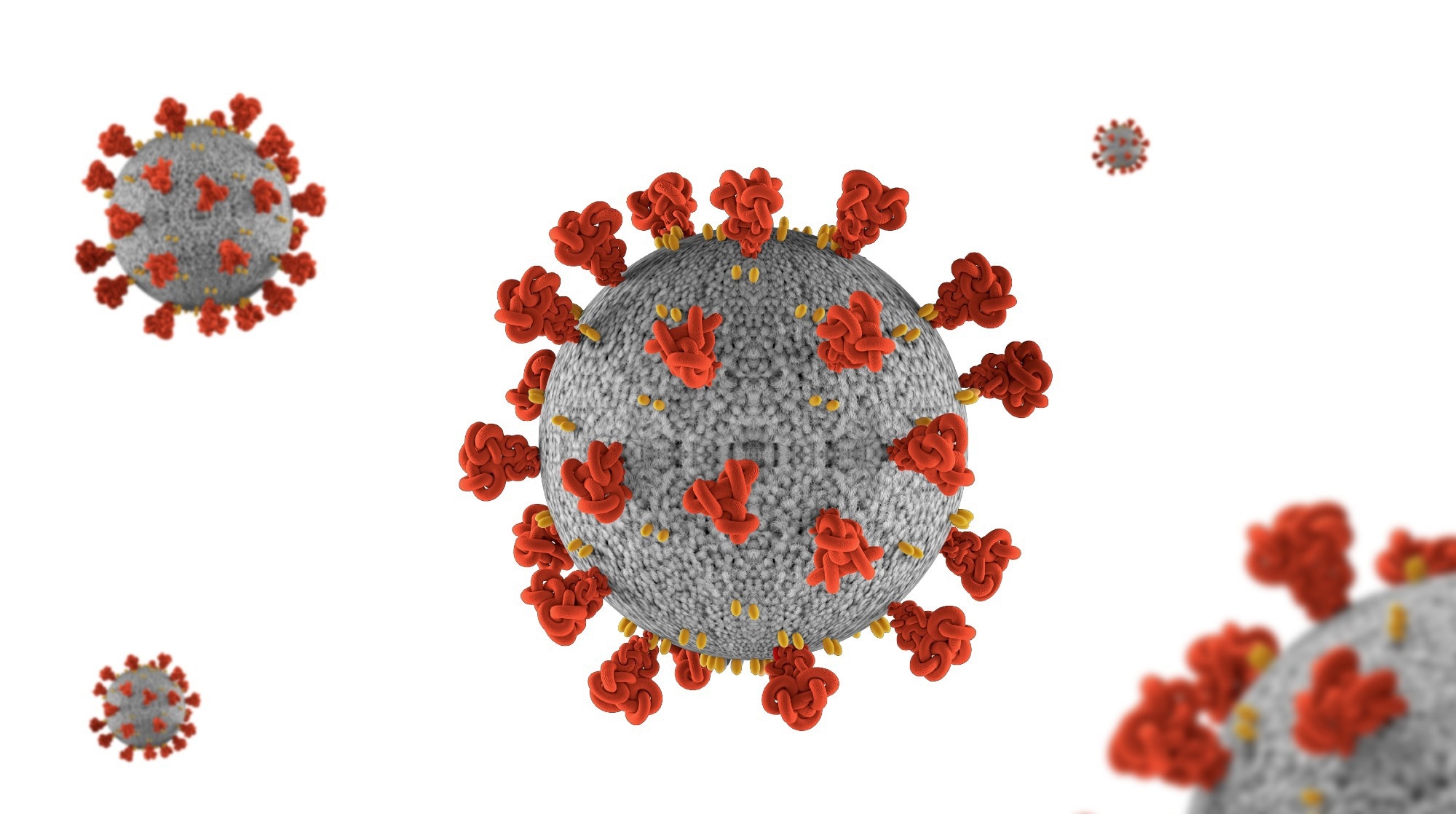A recent study posted to medRxiv* preprint server reported a novel form of post-acute coronavirus disease 2019 (COVID-19) syndrome in children.
 Study: Acute tubulointerstitial nephritis with or without uveitis: a novel form of post-acute COVID-19 syndrome in children. Image Credit: GEMINI PRO STUDIO/Shutterstock
Study: Acute tubulointerstitial nephritis with or without uveitis: a novel form of post-acute COVID-19 syndrome in children. Image Credit: GEMINI PRO STUDIO/Shutterstock
Background

 This news article was a review of a preliminary scientific report that had not undergone peer-review at the time of publication. Since its initial publication, the scientific report has now been peer reviewed and accepted for publication in a Scientific Journal. Links to the preliminary and peer-reviewed reports are available in the Sources section at the bottom of this article. View Sources
This news article was a review of a preliminary scientific report that had not undergone peer-review at the time of publication. Since its initial publication, the scientific report has now been peer reviewed and accepted for publication in a Scientific Journal. Links to the preliminary and peer-reviewed reports are available in the Sources section at the bottom of this article. View Sources
The study’s authors previously reported an increased incidence of tubulointerstitial nephritis and uveitis (TINU) syndrome and acute tubulointerstitial nephritis (aTIN) in pediatric populations during the first year of the COVID-19 pandemic. aTIN causes include systemic diseases, drugs, and infections, but are often undetermined. TINU is a rare syndrome that may result from a less characterized immunologic process. The elevated incidence of aTIN/TINU warrants investigation into its association with severe acute respiratory syndrome coronavirus 2 (SARS-CoV-2).
The study and findings
In the present study, researchers investigated whether SARS-CoV-2 might be responsible for the increased rate of aTIN/TINU in children. Forty-eight children were diagnosed with idiopathic aTIN or TINU in France from April 2020 to March 2021, compared to 8-10 aTIN cases in 2018-19 and 46 cases of TINU syndrome during 2000-18.
All children tested negative for SARS-CoV-2 at the time of aTIN/TINU diagnosis, while four had COVID-19 symptoms in the prior weeks. All tested subjects were negative for antibodies against SARS-CoV-2 nucleocapsid, whereas only one child was positive for antibodies against the viral spike. The team retrospectively performed a luciferase immunoprecipitation assay for SARS-CoV-2 serology.
Serum specimens were available from 16 children at aTIN/TINU diagnosis, and all samples were positive for anti-nucleocapsid immunoglobulin G (IgG). In contrast, only one sample was positive for anti-spike IgG antibodies. Three controls with ibuprofen-induced aTIN were negative for SARS-CoV-2 antibodies.
SARS-CoV-2 pseudovirus neutralization assay performed using 16 samples revealed neutralizing activity in two, consistent with the lack of anti-spike antibodies. Next, the researchers compared the serologic profiles and antibody titers of patients with age-matched controls diagnosed with mild COVID-19 or multisystem inflammatory syndrome in children (MIS-C).
MIS-C subjects were predominantly positive for both anti-spike and -nucleocapsid antibodies (N+S+), with significantly elevated antibody levels than others. Mild COVID-19 subjects exhibited increased anti-spike antibodies but lower anti-nucleocapsid antibody levels than aTIN/TINU subjects. There were no significant differences in the phenotype of the TINU syndrome between pandemic cases (2020-21) and historical cases (2000-18).
The typical clinical presentation was polyuria, sudden weight loss, fever, and inflammatory markers. At diagnosis, all patients showed a lower estimated glomerular filtration rate, which increased at one-year follow-up. Thirty-nine patients underwent kidney biopsies. Light microscopy revealed acute interstitial nephritis with the infiltration of mononuclear cells associated with several tubulitis lesions without immunoglobulin deposits.
The team found no significant morphological changes between the pandemic and pre-pandemic cohorts, except for fewer eosinophils and more fibrosis in the pandemic cohort. Metagenomic next-generation sequencing of 11 kidney samples revealed no definite pathogen. Reverse-transcription polymerase chain reaction (RT-PCR) showed low SARS-CoV-2 messenger ribonucleic acid (mRNA) loads in two of these samples.
Conclusions
The researchers posit that aTIN/TINU could be deemed a novel form of post-COVID-19 syndrome in pediatric populations. Epidemiologic, serologic, and ELISpot data and SARS-CoV-2 detection in two kidney biopsies suggest a causal association. Notably, patients exhibited a distinct N+S- serologic profile, i.e., they showed antibodies against nucleocapsid but not against spike, which is different from that observed in children with MIS-C and adults with COVID-19.
The presence of antibodies against SARS-CoV-2 corroborates the post-infection nature of COVID-19-associated aTIN/TINU. That SARS-CoV-2 mRNA was not detected in most kidney specimens suggests that the infection was resolved. Intriguingly, aTIN/TINU incidence in children declined post-April 2021, plausibly due to the COVID-19 vaccination, herd immunity, or new viral variants. Overall, these findings suggest a causal link between SARS-CoV-2 infection and new-onset renal/eye inflammation.

 This news article was a review of a preliminary scientific report that had not undergone peer-review at the time of publication. Since its initial publication, the scientific report has now been peer reviewed and accepted for publication in a Scientific Journal. Links to the preliminary and peer-reviewed reports are available in the Sources section at the bottom of this article. View Sources
This news article was a review of a preliminary scientific report that had not undergone peer-review at the time of publication. Since its initial publication, the scientific report has now been peer reviewed and accepted for publication in a Scientific Journal. Links to the preliminary and peer-reviewed reports are available in the Sources section at the bottom of this article. View Sources
Journal references:
- Preliminary scientific report.
Avramescu M, Isnard P, Temmam S, et al. (2023). Acute Tubulointerstitial Nephritis with or without Uveitis: A Novel Form of Post-Acute COVID-19 Syndrome in Children. bioRxiv. doi: 10.1101/2023.01.23.23284848 https://www.medrxiv.org/content/10.1101/2023.01.23.23284848v1
- Peer reviewed and published scientific report.
Avramescu, Marina, Pierre Isnard, Sarah Temmam, Agnès Chevalier, Paul Bastard, Mikael Attia, Romain Berthaud, et al. 2023. “Acute Tubulointerstitial Nephritis with or without Uveitis: A Novel Form of Post-Acute COVID-19 Syndrome in Children,” March. https://doi.org/10.1016/j.kint.2023.02.028. https://www.kidney-international.org/article/S0085-2538(23)00165-5/fulltext.
Article Revisions
- May 17 2023 - The preprint preliminary research paper that this article was based upon was accepted for publication in a peer-reviewed Scientific Journal. This article was edited accordingly to include a link to the final peer-reviewed paper, now shown in the sources section.